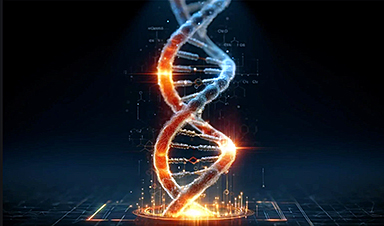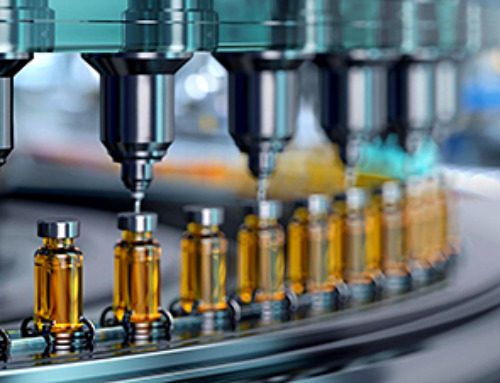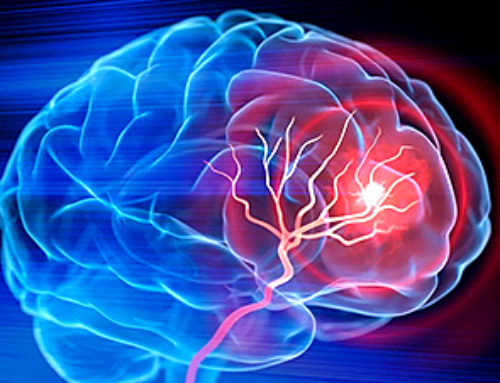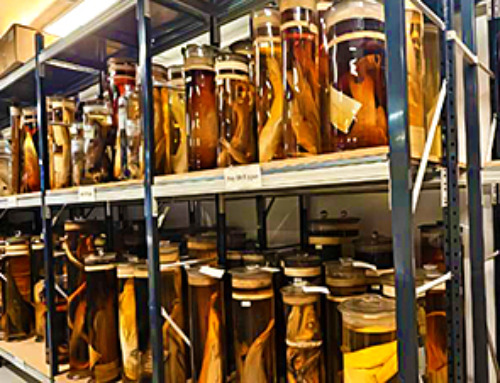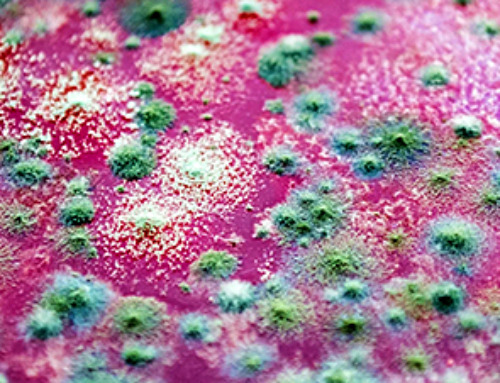CREME, an AI-powered virtual lab, developed at Cold Spring Harbor Laboratory, offers a revolutionary approach to genetic research by simulating CRISPR interference (CRISPRi).
This tool enables scientists to perform virtual genetic experiments and predict their effects on gene activity, which significantly reduces the time and resources required for lab work. CREME's insights into gene regulation could greatly enhance drug discovery and provide access to researchers without physical labs.
Revolutionizing Genetics With AI: Introducing CREME
Imagine you're looking at millions upon millions of mysterious genetic mutations. With CRISPR gene-editing technology, a select few of these mutations might have therapeutic potential. However, proving it would mean many thousands of hours of lab work. Just figuring out which ones are worth exploring further would take a lot of time and money. But what if you could do it in the virtual realm with artificial intelligence?
CREME is a new AI-powered virtual laboratory invented by Cold Spring Harbor Laboratory (CSHL) Assistant Professor Peter Koo and his team. It allows geneticists to run thousands of virtual experiments with the click of a button. Now, scientists can use it to begin identifying and understanding key regions of the genome.
CRISPRi and CREME: Simulating Genetic Changes
The program is modeled after CRISPR interference (CRISPRi), a genetic perturbation technique based on CRISPR. CRISPRi allows biologists to turn down the activity of specific genes in a cell. CREME lets scientists make similar changes in the virtual genome and predicts their effects on gene activity. In other words, it's almost like an AI version of CRISPRi.
"In reality, CRISPRi is incredibly challenging to perform in the laboratory. And you're limited by the number of perturbations and the scale. But since we're doing all our perturbations [virtually], we can push the boundaries. And the scale of experiments that we performed is unprecedented—hundreds of thousands of perturbation experiments," explains Koo.
Delving Into Genome Analysis With AI
Koo and his team tested CREME on another AI-powered genome analysis tool called Enformer. They wanted to know how Enformer's algorithm makes predictions about the genome. Questions like that are central to Koo's work, he says.
"We have these big, powerful models. They're quite compelling at taking DNA sequences and predicting gene expression. But we don't really have any good ways of trying to understand what these models are learning. Presumably, they're making accurate predictions because they've learned a lot of the rules about gene regulation, but we don't actually know what their predictions are based off of."
Implications for Drug Discovery and Accessibility
With CREME, Koo's team uncovered a series of genetic rules that Enformer learned while analyzing the genome. That insight may one day prove invaluable for drug discovery. "Understanding the rules of gene regulation gives you more options for tuning gene expression levels in precise and predictable ways," says Koo.
With further fine-tuning, CREME may soon set geneticists on the path to discovering new therapeutic targets. Perhaps most impactfully, it may even give scientists who do not have access to a real laboratory the power to make these breakthroughs.
Reference: 16 September 2024, Nature Genetics.
DOI: 10.1038/s41588-024-01923-3
News
Plant Discovery Could Transform How Medicines Are Made
Scientists have uncovered an unexpected way plants make powerful chemicals, revealing hidden biological connections that could transform how medicines are discovered and produced. Plants produce protective chemicals called alkaloids as part of their natural [...]
Scientists Develop IV Therapy That Repairs the Brain After Stroke
New nanomaterial passes the blood-brain barrier to reduce damaging inflammation after the most common form of stroke. When someone experiences a stroke, doctors must quickly restore blood flow to the brain to prevent death. [...]
Analyzing Darwin’s specimens without opening 200-year-old jars
Scientists have successfully analyzed Charles Darwin's original specimens from his HMS Beagle voyage (1831 to 1836) to the Galapagos Islands. Remarkably, the specimens have been analyzed without opening their 200-year-old preservation jars. Examining 46 [...]
Scientists discover natural ‘brake’ that could stop harmful inflammation
Researchers at University College London (UCL) have uncovered a key mechanism that helps the body switch off inflammation—a breakthrough that could lead to new treatments for chronic diseases affecting millions worldwide. Inflammation is the [...]
A Forgotten Molecule Could Revive Failing Antifungal Drugs and Save Millions of Lives
Scientists have uncovered a way to make existing antifungal drugs work again against deadly, drug-resistant fungi. Fungal infections claim millions of lives worldwide each year, and current medical treatments are failing to keep pace. [...]
Scientists Trap Thyme’s Healing Power in Tiny Capsules
A new micro-encapsulation breakthrough could turn thyme’s powerful health benefits into safer, smarter nanodoses. Thyme extract is often praised for its wide range of health benefits, giving it a reputation as a natural medicinal [...]
Scientists Develop Spray-On Powder That Instantly Seals Life-Threatening Wounds
KAIST scientists have created a fast-acting, stable powder hemostat that stops bleeding in one second and could significantly improve survival in combat and emergency medicine. Severe blood loss remains the primary cause of death from [...]
Oceans Are Struggling To Absorb Carbon As Microplastics Flood Their Waters
New research points to an unexpected way plastic pollution may be influencing Earth’s climate system. A recent study suggests that microscopic plastic pollution is reducing the ocean’s capacity to take in carbon dioxide, a [...]
Molecular Manufacturing: The Future of Nanomedicine – New book from Frank Boehm
This book explores the revolutionary potential of atomically precise manufacturing technologies to transform global healthcare, as well as practically every other sector across society. This forward-thinking volume examines how envisaged Factory@Home systems might enable the cost-effective [...]
New Book! NanoMedical Brain/Cloud Interface – Explorations and Implications
New book from Frank Boehm, NanoappsMedical Inc Founder: This book explores the future hypothetical possibility that the cerebral cortex of the human brain might be seamlessly, safely, and securely connected with the Cloud via [...]
Global Health Care Equivalency in the Age of Nanotechnology, Nanomedicine and Artificial Intelligence
A new book by Frank Boehm, NanoappsMedical Inc. Founder. This groundbreaking volume explores the vision of a Global Health Care Equivalency (GHCE) system powered by artificial intelligence and quantum computing technologies, operating on secure [...]
Miller School Researchers Pioneer Nanovanilloid-Based Brain Cooling for Traumatic Injury
A multidisciplinary team at the University of Miami Miller School of Medicine has developed a breakthrough nanodrug platform that may prove beneficial for rapid, targeted therapeutic hypothermia after traumatic brain injury (TBI). Their work, published in ACS [...]
COVID-19 still claims more than 100,000 US lives each year
Centers for Disease Control and Prevention researchers report national estimates of 43.6 million COVID-19-associated illnesses and 101,300 deaths in the US during October 2022 to September 2023, plus 33.0 million illnesses and 100,800 deaths [...]
Nanomedicine in 2026: Experts Predict the Year Ahead
Progress in nanomedicine is almost as fast as the science is small. Over the last year, we've seen an abundance of headlines covering medical R&D at the nanoscale: polymer-coated nanoparticles targeting ovarian cancer, Albumin recruiting nanoparticles for [...]
Lipid nanoparticles could unlock access for millions of autoimmune patients
Capstan Therapeutics scientists demonstrate that lipid nanoparticles can engineer CAR T cells within the body without laboratory cell manufacturing and ex vivo expansion. The method using targeted lipid nanoparticles (tLNPs) is designed to deliver [...]
The Brain’s Strange Way of Computing Could Explain Consciousness
Consciousness may emerge not from code, but from the way living brains physically compute. Discussions about consciousness often stall between two deeply rooted viewpoints. One is computational functionalism, which holds that cognition can be [...]
